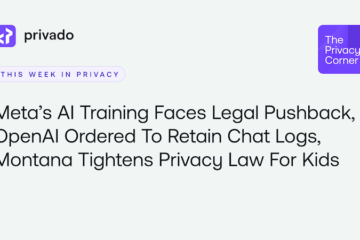Hey there, let’s talk about Data Privacy!
Hey everyone, in today’s interconnected world, companies are facing the challenge of complying with a variety of data protection laws. From the GDPR in Europe to the CCPA in the US, and now the DPDPA in India, it’s a complex landscape out there. Without a solid data privacy framework, navigating these regulations can be overwhelming, putting your organization at risk of penalties and damage to its reputation.
So, how can you build a strong data privacy framework that meets the demands of different countries? Let’s dive in and explore some key considerations for multinational compliance, and see how Formiti can help you build a framework that works for you.
1. Know the Regulatory Landscape
First things first, you need to understand the privacy regulations that apply to your business in different countries. Each region has its own set of rules, from data protection principles to data subject rights and sector-specific regulations. It’s crucial to have a grasp of these requirements to stay compliant.
2. Map Out Your Data
Understanding how data flows through your organization is key. You need to know where personal and sensitive data is stored, how it’s processed, and if it’s being shared with third parties. This data mapping exercise forms the foundation of your data privacy framework.
3. Set Up a Privacy Governance Structure
Having a solid governance structure in place is essential. This includes appointing a Data Protection Officer, developing privacy policies, and establishing a Data Privacy Steering Committee. These measures help ensure that privacy initiatives are coordinated and in line with regulations.
4: Handle Data Transfers with Care
When it comes to transferring data across borders, you need to be mindful of the rules and safeguards in place. Things like Standard Contractual Clauses, Binding Corporate Rules, and Adequacy Decisions play a role in ensuring compliant data transfers.
5: Secure Data Processing Agreements
Working with external data processors requires robust agreements to maintain control and compliance. Define responsibilities, include sub-processor clauses, and specify security measures to safeguard personal data.
6. Implement Technical and Organisational Measures
Protecting personal data from breaches requires solid technical and organizational measures. Encryption, access controls, data loss prevention, and data retention policies are all part of a holistic approach to data protection.
7. Respect Data Subject Rights
Regulations like GDPR and CCPA grant specific rights to data subjects. Establish processes for Data Subject Access Requests, provide clear privacy notices, and manage consent effectively to comply with these requirements.
8. Educate Your Team
Building a culture of privacy within your organization is crucial. Regular training sessions tailored to different roles and incident response drills can help minimize the risk of breaches.
Conclusion: Let Formiti Guide You
Building a global data privacy framework isn’t easy, but with the right expertise, you can navigate the complexities of compliance. Formiti specializes in creating custom data privacy frameworks tailored to your needs. Our team of experts can help you with data mapping, policy development, privacy training, and compliance monitoring. With Formiti by your side, you can achieve seamless compliance across borders and protect your data.



